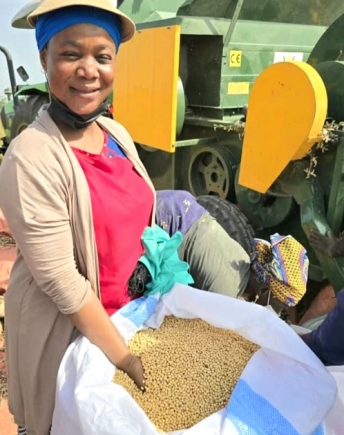In a major milestone for the country’s agricultural sector, the National Varietal Release and Registration Committee has approved six new climate-smart, drought-resistant cowpea varieties developed by the University for Development Studies (UDS), Nyankpala Campus, in the Northern Region. The approval, granted in early November this year, awaits final confirmation from the National Seed Council. This marks the first time UDS has released crop varieties since its establishment more than 30 years ago. The new cowpea lines are expected to significantly strengthen food security, improve nutrition and enhance climate resilience in Ghana and the subregion.
The approved varieties include: Tuya Bilichini, which matures in 50–55 days and is high in potassium and iron; Kachagu Tuya, which matures in 55–60 days and contains high levels of calcium, magnesium and iron; and AGRAWACC Tuya, which also matures in 55–60 days and has high fat, protein and ash content. The others are Atiriyinya Tuya, which matures in 70–75 days and is rich in calcium, zinc and iron; UDS Ny-25, which matures in 75–85 days and is high in carbohydrates; and Zara Tuya, a calcium-, zinc- and protein-rich variety that matures in 55–60 days.

Breakthrough
The successful development of these varieties was led by Sanatu Mustapha Alidu, an Associate Professor of Plant Breeding and Genetics in the Crop Science Department of the Faculty of Agriculture, Food and Consumer Sciences (FoAFCS) at UDS. After field assessments and a comprehensive presentation by Prof. Alidu—who served as the lead researcher and principal investigator—the committee approved all six varieties based on their resilience, yield potential, nutritional value and other important economic qualities.
Prof. Alidu explained that the varieties are rich in essential minerals and are well-positioned to improve food security and boost household incomes, particularly in the Guinea and Sudan savanna agro-ecological zones.
“They also represent a significant contribution to the Ministry of Food and Agriculture’s flagship Feed Ghana Programme and the nation’s broader agricultural transformation agenda,” she noted.
All six varieties showed strong adaptability to multiple farming systems, including sole cropping, intercropping and double cropping, with some suited for mechanical harvesting.
Collaboration
The development of the cowpea varieties was made possible through collaboration among UDS, the Council for Scientific and Industrial Research–Savanna Agricultural Research Institute (CSIR–SARI) and the Japan International Research Centre for Agricultural Sciences (JIRCAS–TERRA).
Once final approval is granted by the National Seed Council, the varieties will be released for multiplication and distribution to farmers in upcoming planting seasons.
Prof. Alidu expressed appreciation to all collaborators and partners, stating that “the success of developing these new varieties signals a new era of research partnerships dedicated to addressing food security challenges and strengthening climate resilience for Ghanaian farmers.”
Source: Abdul Wahab Yumzaa Yakubu/Zaaghana.com


